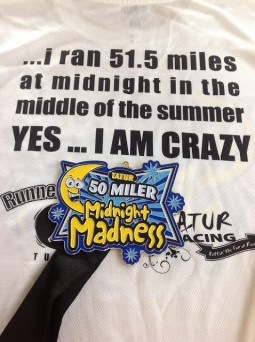by Christina Scharmer
Researchers at the State University of New York at Albany are investigating possible risk and protective factors associated with compulsive exercise and disordered eating behaviors in recreational and competitive runners.
Survey here
Why run?
Why do we choose to spend hours on the road or trail placing one foot in front of the other? As runners, we’ve consistently encountered similar questions and we all answer in our own way. We’ve all got the reasons why we lace up our shoes day after day.
Maybe we’re motivated to get or stay healthy. We know running is associated with improved physical health. Or maybe we’ve experienced the mental benefits of running. Research shows that physical activity can lead to improved mood and cognitive functioning. Some of us run because it’s time we can spend with our friends and family. Running is a great social activity and can lead to the development of strong relationships. Perhaps we want to explore? We can run almost anywhere. Exploring a new route or trail can be fun and exciting and running allows us to discover places we wouldn’t otherwise experience.

These reasons are familiar to us. We can appreciate the many benefits we experience when we run. Sometimes, however, reasons for running can be problematic. For some, running can become excessive or compulsive and can be associated with disordered eating. In these situations, running can have very dangerous physical and mental health consequences. While some recent research has started to look at these problems in runners, there is still so much we don’t know! Improving our understanding of why these problems develop and whom they impact will help researchers/scientists/psychologists/etc. develop prevention and intervention programs for runners who are struggling with problematic eating and exercise behaviors.
Want to help?
You can! Researchers at the State University of New York at Albany are investigating possible risk and protective factors associated with compulsive exercise and disordered eating behaviors in recreational and competitive runners. They are seeking volunteers to complete a brief 5-minute online survey or an optional extended 15-minute online questionnaire in exchange for a raffle entry for a $20 Amazon gift card (winners will be notified late summer/early fall 2018).
Survey here
Questions? Contact Christina Scharmer cscharmer@albany.edu.
The study is being conducted by a graduate student at the University at Albany SUNY, under the supervision of Drew Anderson Ph.D., drewa@albany.edu.
Allegre, B., Therme, P., & Griffiths, M. (2007). Individual factors and the context of physical activity in exercise dependence: A prospective study of “ultra-marathoners.” International Journal of Mental Health and Addiction, 5(3), 233–243. https://doi.org/10.1007/s11469-007-9081-9
Anderson, L. M., Reilly, E. E., Gorrell, S., & Anderson, D. A. (2016). Running to win or to be thin? An evaluation of body dissatisfaction and eating disorder symptoms among adult runners. Body Image, 17, 43–47. https://doi.org/10.1016/j.bodyim.2016.02.003
Cook, B., Karr, T. M., Zunker, C., Mitchell, J. E., Thompson, R., Sherman, R., … Wonderlich, S. A. (2013). Primary and secondary exercise dependence in a community-based sample of road race runners. Journal of Sport & Exercise Psychology, 35(5), 464–469. https://doi.org/10.1123/jsep.35.5.464
De Moor, M. H. M., Beem, A. L., Stubbe, J. H., Boomsma, D. I., & De Geus, E. J. C. (2006). Regular exercise, anxiety, depression and personality: A population-based study. Preventive Medicine, 42(4), 273–279. https://doi.org/10.1016/j.ypmed.2005.12.002
Karr, T. M., Zunker, C., Thompson, R. A., Sherman, R. T., Erickson, A., Cao, L., … Mitchell, J. E. (2013). Moderators of the association between exercise identity and obligatory exercise among participants of an athletic event. Body Image, 10(1), 70–77. https://doi.org/10.1016/j.bodyim.2012.09.004
Oja, P., Titze, S., Kokko, S., Kujala, U. M., Heinonen, A., Kelly, P., … Foster, C. (2015). Health benefits of different sport disciplines for adults: systematic review of observational and intervention studies with meta-analysis. British Journal of Sports Medicine. Retrieved from http://bjsm.bmj.com/content/early/2015/01/07/bjsports-2014-093885.abstract

















